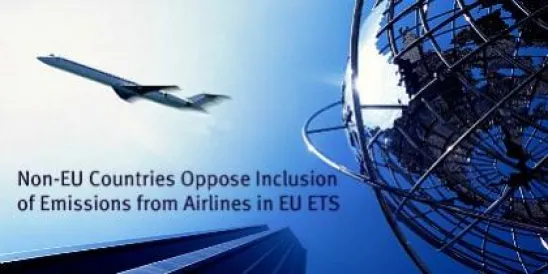Following the preliminary court ruling that all aviation emissions are to be regulated under the European Union (EU) Emissions Trading Scheme (ETS), several non-EU countries have convened to oppose the inclusion of their airlines in the EU ETS. In a meeting held in Moscow at the end of February, a reported 26 countries, all members of the United Nation’s International Civil Aviation Organization (ICAO), met to discuss possible countermeasures to the EU ETS.
The countries, which include the U.S., China, India and Russia, stated that if non-EU based operators are forced to participate in the EU ETS, then they may consider adopting one or more of the following measures:
- Prohibiting national airlines from participating in the EU ETS;
- Lodging an official complaint with the ICAO;
- Requiring EU airlines to submit data, including flight details, thereby adversely affecting entities operating in Europe;
- Suspending current and future talks with EU airlines regarding possible new routes; and
- Recovering the cost of the EU ETS by imposing levies and charges on EU airlines.
The countries also requested a review of the Bilateral Air Services Agreements, including the Open Skies agreement. Following the meeting in February, delegates of the opposing nations issued a declaration stating that the “inclusion of international civil aviation in the EU ETS leads to serious market distortions and unfair competition.”
Separately, Russia has stated that it would consider imposing fees on European carriers undertaking flight routes over Siberia, or capping the number of flights over Siberia. This measure would come despite Russia having previously agreed to ease the restrictions, as part of its World Trade Organization accession.
A spokesman for the U.S. State Department stated that he hopes that the European law will be revised before coming into force, thereby exempting non-EU airlines. Instead, he is of the view that it would be prudent to adopt a scheme that would be more globally suitable. Policy makers in the EU have stated that they would be amenable to such this approach, as long as the global program adopted ensured that all airlines using EU airports paid for carbon credits.
Further meetings of the non-EU countries opposed to the inclusion are scheduled for the months.



 />i
/>i
